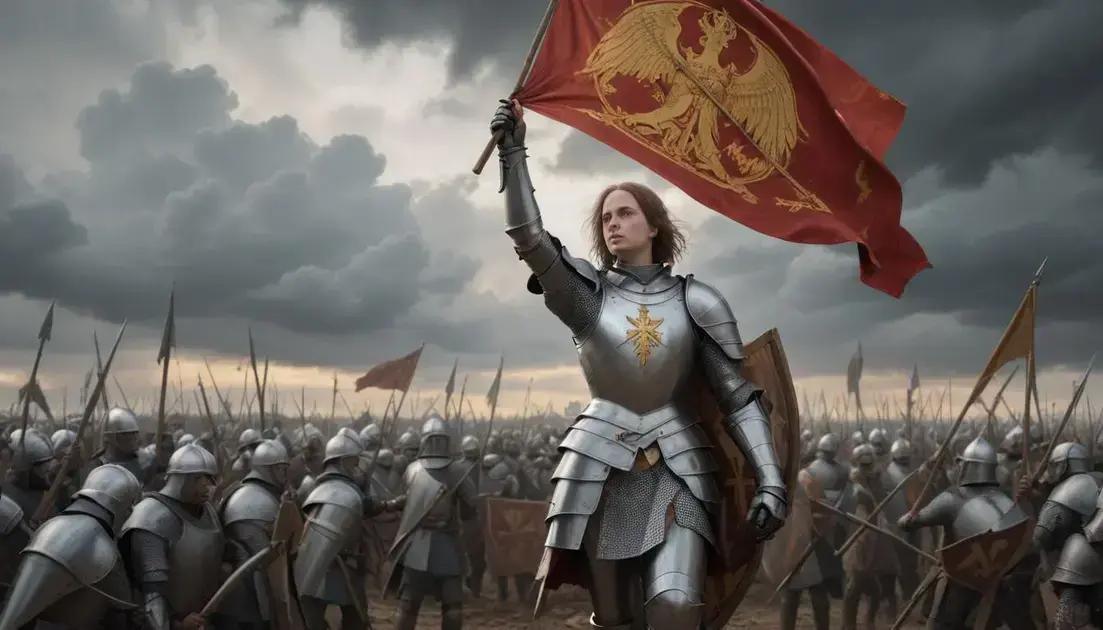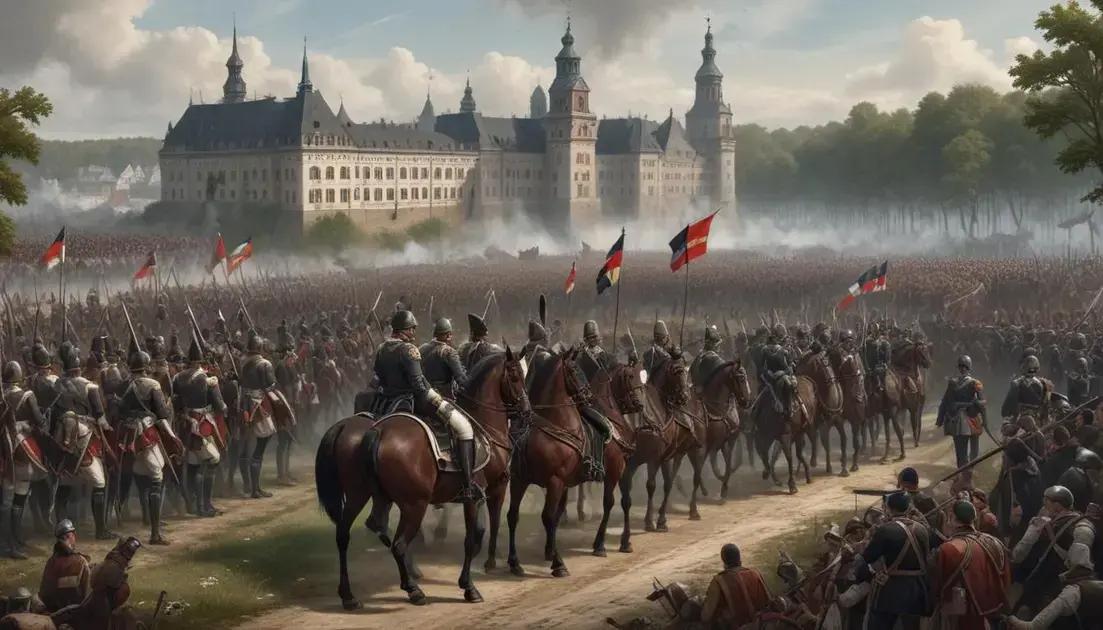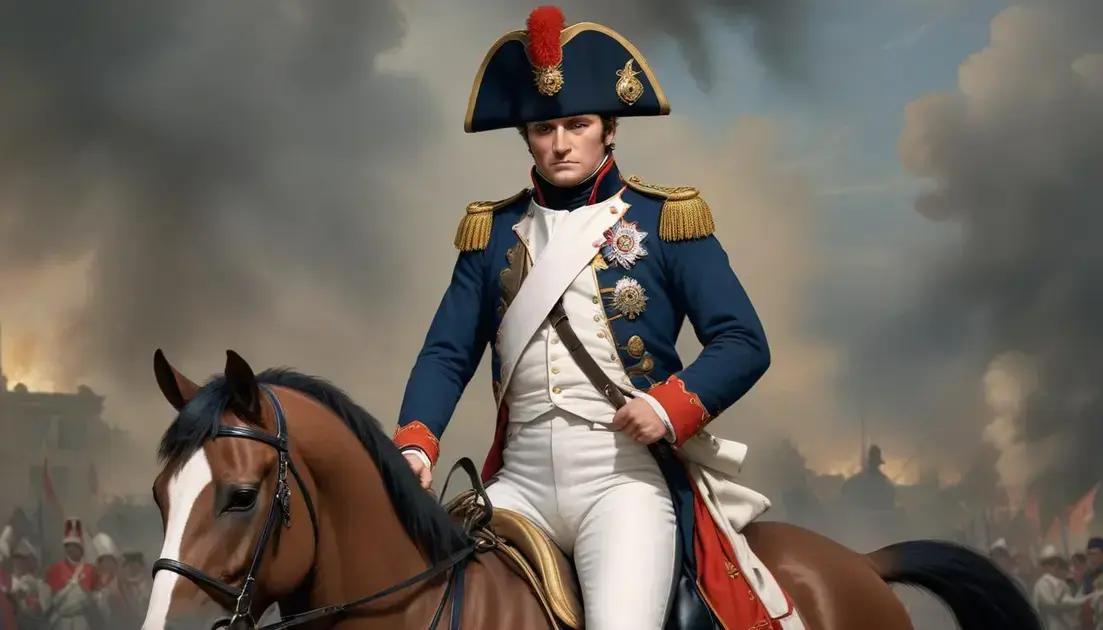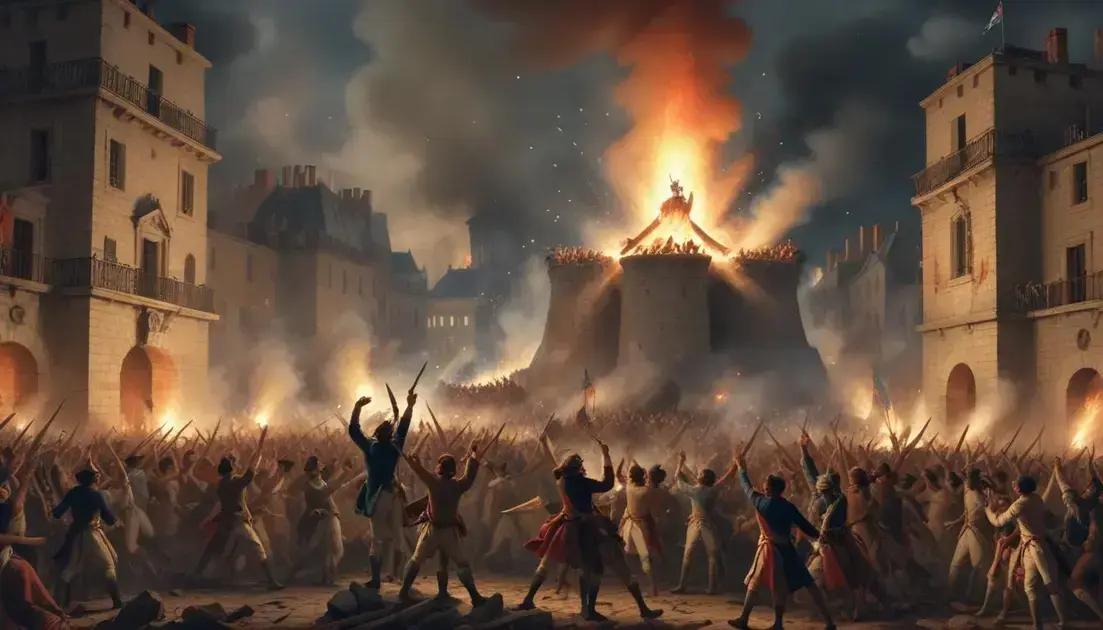
Joan of Arc: Faith, Courage and the Myth of the Warrior Maiden
Joan of Arc is a historic figure known for her bravery and leadership during the Hundred Years’ War. A peasant girl who believed she received divine guidance, she successfully led French troops to key victories, including the Siege of Orléans. Joan’s legacy spans literature, art, and modern-day culture, making her a symbol of empowerment and faith. Despite myths surrounding her life, such as fighting alone or being a warrior in shining armor, her true impact is characterized by her strategic military campaigns and unwavering conviction in her beliefs.
Joan of Arc stands as a beacon of courage and conviction in history, leading her people to victory against overwhelming odds. But what truly shaped this legendary figure’s journey? Let’s dive into her extraordinary life.
Introduction to Joan of Arc and her historical significance
Joan of Arc was born around 1412 in France. She lived during a tough time known as the Hundred Years’ War. This conflict was between France and England and lasted for many years. Joan, a humble peasant girl, believed she received messages from God. These messages told her to support Charles VII, the rightful king of France.
At just 17, Joan convinced Charles to let her lead an army to the city of Orléans. Her belief and courage inspired the French troops. They achieved a major victory at Orléans in 1429. This event changed the course of the war and boosted the morale of the French people.
Joan’s role didn’t stop with Orléans. She continued to support Charles’s coronation in Reims, making him King of France. This was a vital moment, as it united the French people under their king.
Sadly, her journey was cut short. In 1430, Joan was captured by enemy forces. She was put on trial and later executed in 1431. Despite her tragic end, her bravery has made her a symbol of hope and resilience for generations.
Today, Joan of Arc is celebrated not only as a national heroine of France but also as a global icon of courage and faith. Her story continues to inspire those who fight for justice and freedom.
The role of faith in Joan’s life and leadership
Faith played a huge role in Joan of Arc’s life. From a young age, she believed God spoke to her. These messages gave her guidance and direction. They inspired her to take action during a difficult time in France.
Joan’s faith was not just personal. It became her driving force as a leader. She encouraged soldiers with her strong belief in a higher purpose. Her confidence inspired others to follow her into battle.
When she led the French army to Orléans, her faith shone through. She told her troops that they fought for God and their country. This belief helped them achieve a surprising victory. It boosted their morale and confidence in their cause.
Her faith didn’t fade even in tough times. After her capture, she stood strong during trials. Despite facing death, she remained true to her beliefs. This unwavering faith made her a hero to many.
Joan’s story shows how faith can drive people to achieve great things. It also reminds us how belief can unite and empower others. Today, she is a symbol of faith and courage worldwide.
Joan’s military campaigns and strategies
Joan of Arc was not just a symbol of faith; she was a skilled military leader. Her campaigns were marked by bold strategies that changed the course of the Hundred Years’ War. She believed in direct action and swift maneuvers.
One of her key campaigns took place in Orléans. The city was under siege by the English. Joan arrived with a determined spirit and a clear plan. She rallied the French troops and organized quick attacks to lift the siege.
Joan also used surprise to her advantage. She led nighttime raids that caught the English off guard. These tactics helped the French regain confidence and strength. Many soldiers felt inspired to fight alongside her.
After the victory at Orléans, Joan continued her mission. She supported Charles VII’s coronation at Reims. This was a strategic move to unify France under a legitimate king. By doing this, she aimed to strengthen the French cause.
Joan also emphasized the importance of morale in her strategies. She encouraged her troops, reminding them they fought for their country and faith. This motivation proved crucial in battles.
Her military campaigns, while short-lived, left a lasting impact. Joan’s unique style of leadership combined faith and strategy to inspire an entire nation.
The myth vs. reality of Joan of Arc
Joan of Arc is often viewed as a mythical figure in history. Many legends surround her life and actions. But separating myth from reality helps us understand her true impact.
One popular myth is that Joan fought alone. In fact, she led groups of soldiers. Her leadership inspired many to join her cause. Together, they fought against the English forces.
Another myth is her portrayal as a warrior in shining armor. While she wore armor, it was often practical and simple. Her focus was on her mission, not on creating an image.
People also think Joan’s victories were mainly due to her divine guidance. While she believed in her faith, her strategies and tactics played vital roles. She worked hard to rally troops and plan attacks effectively.
After her capture, many myths arose about her trial and execution. Some tales suggest her trial was unfair. While it was politically motivated, the tribunal followed legal procedures of the time.
Despite the myths, Joan’s bravery and determination were real. Her story has inspired countless people over the centuries. Recognizing the truth behind the legends helps us appreciate her legacy more deeply.
Legacy and cultural impact of Joan today
Joan of Arc’s legacy continues to resonate today. She is seen as a symbol of courage and faith. Many people admire her for standing up for what she believed in.
Her story has inspired countless books, movies, and plays. They depict her as a brave fighter who challenged the norms of her time. These portrayals help keep her memory alive in popular culture.
Statues and monuments honor her around the world. Places like France celebrate her in festivals and events, recognizing her role in history. Even schools teach about her life, showing the impact she had on the world.
Joan also represents women’s strength and empowerment. She challenges the idea that women should be passive. Instead, she shows that women can be leaders and change-makers. This message resonates with many today.
Her legacy encourages people to follow their convictions, no matter the challenges. Joan’s story is a reminder that one person’s belief can inspire many. Today, she stands as a beacon of hope for those fighting for justice and freedom.
Conclusion
In conclusion, Joan of Arc remains a powerful symbol of courage and faith. Her life story continues to inspire people around the world. Through her actions, she showed us the importance of standing up for what we believe in, even in tough times.
Her legacy teaches us that one person can make a difference. Joan’s impact on history and culture reminds us that we all have the power to inspire change. Whether through art, education, or daily life, her story resonates strongly today.
As we reflect on her life, let’s embrace the values she stood for: bravery, conviction, and unity. These lessons are as relevant now as they were in her time. Following Joan’s example encourages us to strive for justice and fight for our beliefs.


